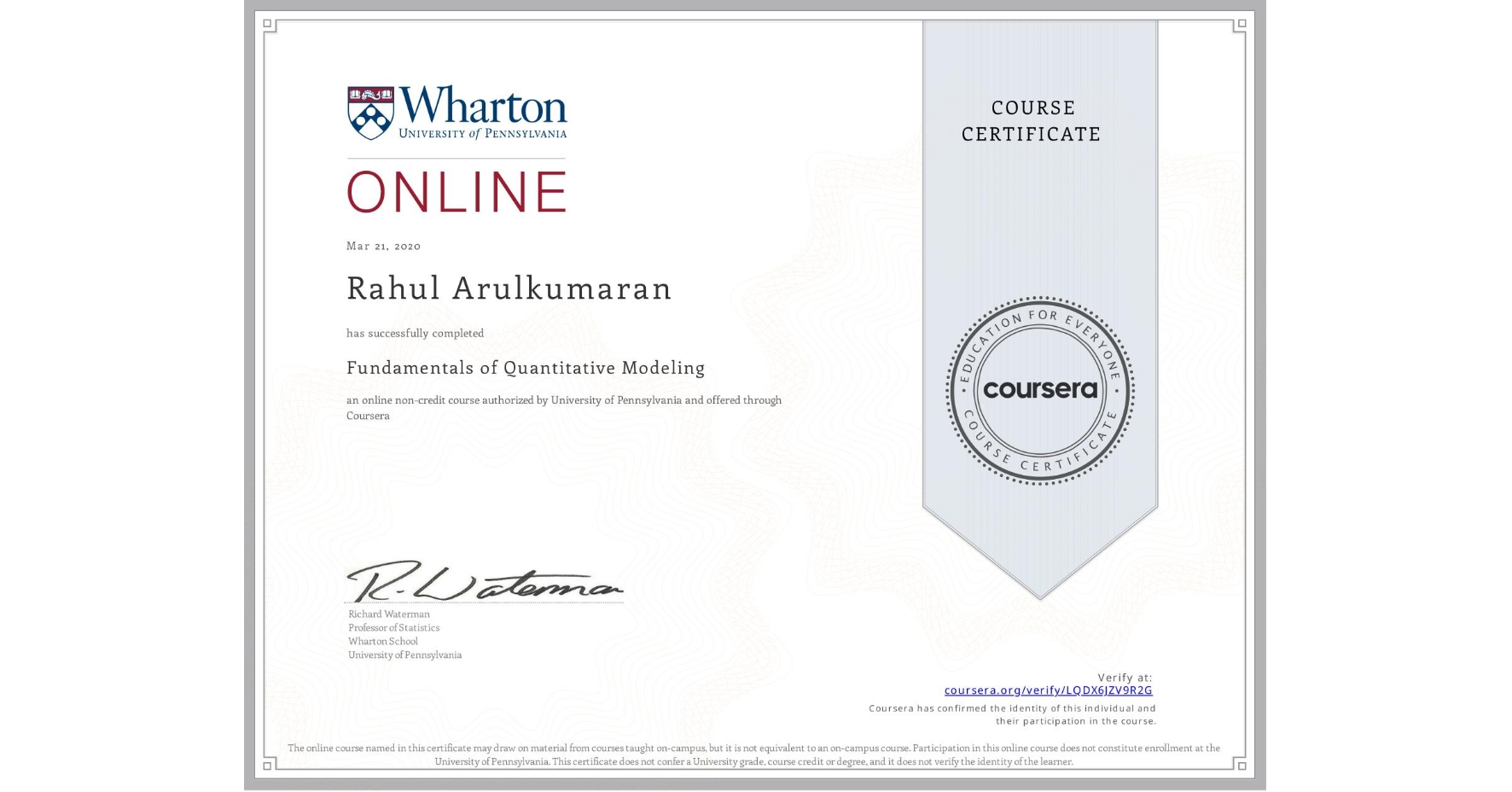About
Rahul Arulkumaran is a dynamic AI Engineering Manager at Yuma, with an extensive background in artificial intelligence, machine learning, data science, and blockchain technologies. With a research-driven mindset, he has secured two patents and authored three research papers, demonstrating his ability to innovate and contribute meaningfully to the tech industry. His expertise encompasses the entire data science pipeline, including data engineering, exploratory data analysis, predictive modeling, natural language processing (NLP), time series forecasting, and AI-driven decision-making. He has a deep understanding of cloud computing, working extensively with AWS, Snowflake, Terraform, and Docker to build scalable and efficient data pipelines. Rahul holds a Master of Science in Data Science from the University at Buffalo, where he honed his skills in advanced analytics and blockchain technology, working as a research assistant at Blockchain ThinkLab under Professor Bina Ramamurthy.
Before joining Yuma, Rahul was an AI/ML Engineer Fellow at Foundry, where he played a pivotal role in developing machine learning models to predict S&P 500 prices using BitTensor. His work led to the establishment of a new business line projected to generate millions in annual revenue. He successfully architected and optimized a subnet with 100% utilization of 256 miner slots, demonstrating his expertise in distributed computing and blockchain-based AI applications. His tenure at Foundry also included roles as Data Engineer III and Data Engineer II, where he built highly scalable ETL pipelines handling over 10TB of historical data and 10GB of daily data, integrating multiple AWS services such as S3, Glue, Athena, ECS, and Kinesis. He also played a key role in implementing Mulesoft for ETL and API development, significantly improving internal data access efficiency. His contributions reduced API response times by 95%, streamlined data reconciliation processes, and enhanced data availability across teams.
Rahul's entrepreneurial mindset is evident in his experience as the CEO and Co-Founder of Widhya, an ed-tech startup that grew from 650 to 15,000 users in just three months, leveraging data-driven growth strategies. His leadership in the Web3 space includes co-founding NFT Garage and Stonk Society, a successful NFT project that raised $200,000 in sales. Additionally, he worked as a part-time developer for SpiritSwap, designing robust APIs and portfolio analytics tools for blockchain users. His ability to bridge AI, blockchain, and data science has allowed him to contribute meaningfully to various decentralized finance (DeFi) projects across Ethereum, Fantom, Avalanche, and Polygon ecosystems.
Beyond his professional roles, Rahul actively contributes to the technology community. He is a member of the Forbes Technology Council and an early adopter at the AI Frontier Network, highlighting his influence in AI and blockchain discussions. As a technical reviewer for O'Reilly, he ensures the quality and accuracy of AI and data science publications. He is also a member of prestigious organizations like the International Association of Engineers (IAENG) and the Association of Data Scientists, reflecting his commitment to continuous learning and thought leadership.
Rahul’s technical expertise extends to impactful projects such as the Bitcoin Price Predictor, which utilized linear regression and data visualization techniques to forecast cryptocurrency prices, securing him a top-five position in a hackathon. Another significant project, the Depression Detection Bot, leveraged NLP and AI to assess mental health risks and suggest appropriate treatments. His ability to apply AI solutions to diverse fields—from finance to mental health—demonstrates his versatility and problem-solving capabilities.
With an impressive skill set spanning machine learning, AI, blockchain, Web3 development, cloud computing, and data engineering, Rahul continues to push the boundaries of technology. His leadership, innovative mindset, and technical prowess make him a significant contributor to the evolving landscape of artificial intelligence and blockchain applications.
Skills & Expertise
Machine Learning
Python
Data Science
Amazon S3
AWS Glue
Amazon Athena
Grafana
Prometheus
Tableau
Snowflake
Data Modeling
Terraform
Docker
AWS SageMaker
Databricks
Analytical Skills
Blockchain
Blockchain Analysis
NFT
Smart Contracts
GameFi
Ethereum
Launchpad
Cryptocurrency
Firebase
Flutter
REST APIs
Data Analysis
Strategic Planning
Business Strategy
React.js
JavaScript
SQL
C++
Entrepreneurship
Flask
Back-End Web Development
Research Interests
cloud computing
Distributed Computing
Data Scientist
Data Engineering
Predictive Modeling
Data Engineering Leadership
API Development
Blockchain Technologies
Product Development
Software Development
Computer Science
Web3 Development
AI-Driven Decision Making
Entrepreneurial Mindset
Connect With Me
Experience
AI Engineering Manager
Education
University at Buffalo, New York
Projects
Bitcoin Price Predictor
This was a project that I worked on during the Hackathon organised by JNTUHCEH. It's a Bitcoin Price Predictor that uses visualisation techniques to figure out the important fields in a Dataset to perform a Data Science. Finally, I used the Linear Regression algorithm to predict prices of Bitcoins on any given day. This project helped me secure the 5th position in the Hackathon
Certificates & Licenses (1)
Fundamentals of Quantitative Modeling
https://coursera.org/verify/LQDX6JZV9R2G
Professional Memberships (1)
International Association of Engineers (IAENG)
Country: United States
Publications (1)
When it comes to financial markets, information asymmetry, which occurs when different players have access to
differing degrees of knowledge, may result in inefficient markets, skewed pricing, and un...
dd






